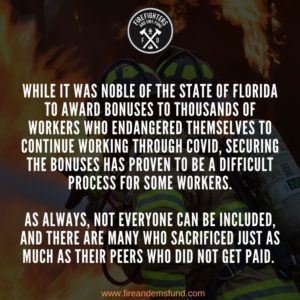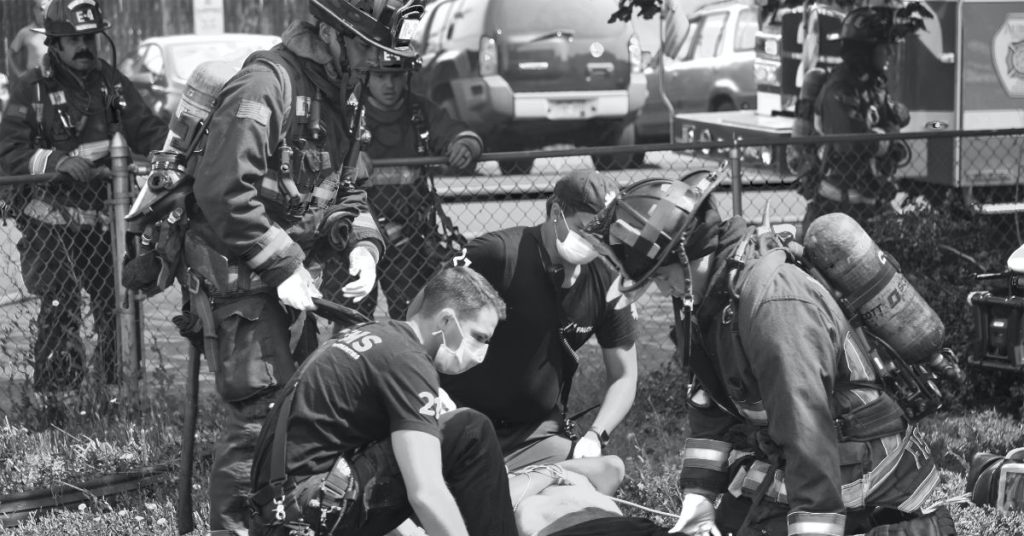In May, the Florida legislature, at the behest of Republican Governor Ron DeSantis, announced the inclusion of one-time Covid relief payments to the state’s teachers and first responders, including firefighters and EMTs.
The measure, which was included in the state’s budget allocations for the year, put aside over 40 million dollars to provide qualifying state employees with $1000 payments.
When announcing the implementation of the measure, DeSantis gave the following statement:
“Supporting our law enforcement and first responders has been a top priority for my administration, and it has never been more important than over the last year. As a state, we are grateful for their continued service to our communities. This one-time bonus is a small token of appreciation, but we can never go far enough to express our gratitude for their selflessness.”
While the gesture of rewarding those who continued to serve our communities in person during the unprecedented Covid-19 pandemic is unquestionably noble, controversy still arose over DeSantis’s bill.
For instance, many took issue with the manner in which the state plans to pay out the bonus.
As noted by the Miami Herald, and republished by Fire Rescue 1:
“Two state agencies signed contracts with Fidelity Information Services last month to collect information on police officers, firefighters, paramedics, teachers and principals to determine which ones are eligible for the $1,000 bonuses and send them checks.”

Typically, the state has sent the money directly to state employers to distribute the cash themselves. The inclusion of the third-party Fidelity Information Services cost taxpayers millions on top of the money set aside for the bonuses.
There was also an issue with who would receive the money within the framework of the essential workers outlined in the bill.
“Not every educator or first responder will get these bonuses when they do go out.
The bonuses for about 180,000 teachers and about 3,600 principals are not going to other school employees, such as counselors, assistant principals and other staff.”
In addition, many correctional officers were excluded from receiving the money if they were subject to any disciplinary action within the last year.
This matter was later negotiated by the Florida Correctional Officers union, resulting in the excluded officers being paid if their infractions were only deemed “minor.”
But most poignantly for our organization, was the exclusion of volunteer fire fighters who were there on the front lines serving their communities during Covid alongside the professionals.
“Gov. Ron DeSantis’ Florida’s Heroes Initiative provided $1,000 bonus checks to about 200,000 first responders, including 35,000 firefighters, through the Department of Economic Opportunity. But volunteer firefighters across the state did not receive the bonus.”
While it was noble of the state of Florida to award these bonuses to thousands of workers who endangered themselves to continue working through Covid, securing the bonuses has proven to be a difficult process for some workers.
As always, not everyone can be included, and there are many who sacrificed just as much as their peers who did not get paid. And ultimately, whether it was the fault of DeSantis or the unions who wanted to bring him back to the negotiating table, the matter of awarding Florida’s hardworking essential employees became ensnared in the politics of money as these things so often do.
Image Credit: Photo Andrew Coop by on Unsplash
While states scramble for ways to fund their governments as restricted economies lead to drastic reductions in revenue over time, local and state employees and public services are often the first budgetary lines that get slashed. Emergency services, and specifically the jobs of firefighters, are increasingly vulnerable as money dries up.









